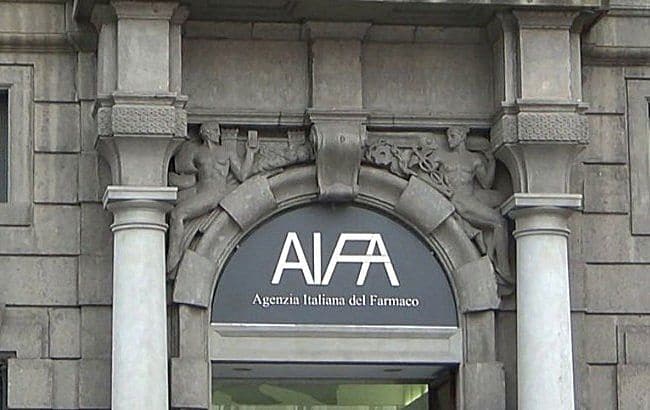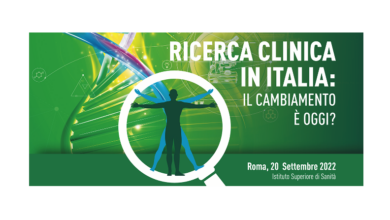
Professor Silvio Garattini, 90, founder of the Mario Negri Institute, has long argued that "half of medicines are useless, one pill out of two is useless". The reason? «There are dozens of pharmaceutical products on the market of the same active ingredient, which differ only in the label. All this is not used to cure the sick, but to inflate the profits of pharmaceutical companies". An example? A scientific research  published by British Medical Journal has ascertained that the 65% of oncological drugs, usually among the most expensive, were not introduced for the benefit of the sick, but for that of Big Pharma's budgets. But who controls this market? In Italy, Aifa (Italian Medicines Agency) has the task of establishing the price of medicines that pharmaceutical companies sell to the National Health Service. A secret price, such as for a clause imposed by Big Pharma on European states, so as to make it impossible to unify the price of the same drug even in countries with the same currency, the euro. Above Aifa, with greater power, there is EMA, the European Medicines Agency, moved from London to Amsterdam after Brexit: its task is to authorize, or prohibit, the placing on the European market of every single drug. Therefore, an enormous decisive power.
published by British Medical Journal has ascertained that the 65% of oncological drugs, usually among the most expensive, were not introduced for the benefit of the sick, but for that of Big Pharma's budgets. But who controls this market? In Italy, Aifa (Italian Medicines Agency) has the task of establishing the price of medicines that pharmaceutical companies sell to the National Health Service. A secret price, such as for a clause imposed by Big Pharma on European states, so as to make it impossible to unify the price of the same drug even in countries with the same currency, the euro. Above Aifa, with greater power, there is EMA, the European Medicines Agency, moved from London to Amsterdam after Brexit: its task is to authorize, or prohibit, the placing on the European market of every single drug. Therefore, an enormous decisive power.
Unfortunately, it is a power surrounded by shadows and disturbing suspicions. Suffice it to say that the 2020 EMA budget, out of a total of 358 million euros, is covered for 307 million (84%) by contributions from pharmaceutical companies and just 51 million from European Union funds. Data unearthed and published by Mario Giordano in his beautiful book (Sciacalli, virus, salute and money; Mondadori). Numbers that demonstrate how, in the EU pharmaceutical sector, the subsidiary (Big Pharma) actually controls the controller (EMA), and influences every single decision on the drugs to be placed on the European market.
Indeed, thanks to the millions paid, Big Pharma has the privilege of participating in EMA meetings through its own lawyer. By law, EMA's assessments of a new drug must be based on three parameters: safety, efficacy, quality. Which is the minimum. But if a drug duplicates a previous one, is it really necessary? Well, this question is useless to ask during EMA meetings. "I tried," a former EMA member told Giordano. «I raised my hand and asked: are we sure that this new drug is necessary? Does it add something new? Do you care better than others? Every time the lawyer of the pharmaceutical companies, always present at the sessions, blocked me: the law does not provide for this evaluation». And of course he had won.
It is therefore no coincidence that in twenty years the EMA has authorized 975 new drugs, while those rejected every year can be counted on the fingers of one hand (five in 2018). With 36 directors and 890 employees, EMA is a bandwagon  which has caused discussion several times, above all due to the lack of transparency. In 2018, due to Brexit, its headquarters were transferred to Amsterdam, which defeated Milan only thanks to a draw whose documents, strangely, were lost. But a few months later, thanks to ItaliaOggi and an article of mine based on the e-mails of some Ema employees, it was discovered that Amsterdam had bluffed, as it did not have a suitable office, while Milan had the Pirellone already ready
which has caused discussion several times, above all due to the lack of transparency. In 2018, due to Brexit, its headquarters were transferred to Amsterdam, which defeated Milan only thanks to a draw whose documents, strangely, were lost. But a few months later, thanks to ItaliaOggi and an article of mine based on the e-mails of some Ema employees, it was discovered that Amsterdam had bluffed, as it did not have a suitable office, while Milan had the Pirellone already ready
Afterthoughts? Counterattack by the Italian government? Zero. Thus the municipality of Amsterdam, with the connivance of the Brussels bureaucrats, had plenty of time to build a brand new headquarters in the suburbs, where the EMA moved calmly, but at a high price. The English High Court of Justice has indeed sentenced the EU drug agency to pay until 2039 the rent it had stipulated for the London headquarters with a leading real estate group, which did not want to hear about rescinding the leasing contract . And the British press has quantified the total cost of the sentence for the EMA at between 470 and 574 million euros, a sum far higher than its annual budget.
For this reason, it will be really interesting to find out, in some time, which pocket the millions will come from to face the sentence: the EU budget 2021-27, still under discussion, or the Big Pharma companies, in exchange for the usual favors, will take charge of them ? Mario Giordano has calculated that the top ten pharmaceutical companies in the world have a turnover of 408 billion euros a year, three times Hungary's domestic product, 250 times Gambia's GDP. The answer to who will pay, you can bet, will come accordingly. Which does not mean that the European pharmaceutical bounty continues to be a very serious political problem, where Big Pharma counts more than sovereign states and the EU itself, so that its profits count more than the protection of the health of European citizens: a question made even more urgent by the Covid-19 pandemic, but culpably ignored by governments and newspapers across the European Union.
Article published on ItalyToday
Start Magazine – September 12, 2020
Editor's note:
Someone, evidently misunderstanding and not knowing our story, complains that the article reported on Big Pharma's funding to the EMA would put the ISFs in a "bad light" and could cause them serious employment damage.
It is good to specify the following.
Any opinion, advice, statement or other information expressed or made available by third parties and published or reported by us is not attributable nor necessarily shared by Fedaiisf but to the respective authors.
The responsibility for the contents shown on this site lies with the writer. Fedaiisf is not responsible for what is published in articles that are not its own or for the comments reported or of any other platforms not connected to the same Fedaiisf.
The fact that the ISFs also work for Big Parma does not mean that they are Big Pharma. It is precisely our silence about it that could be exploited by our detractors who could accuse us of complicity demonstrated by the aforementioned silence.
Fedaiisf has nothing to do with the "system" of pharmaceutical companies or with the connections that they establish with those who should control them. So much so that we continually denounce the inconsistencies and contradictions of the entire health system. This is in the interest of the Health Service and therefore of the citizen.
However, we have a duty to say how things stand. Always, even if we don't like them
In the specific merit of the article reported. Rasi, EMA Director, declared: "We work on a first level, which defines the benefit-risk of a treatment. The second level is that of the HTA, Health technology assessment, i.e. the definition of the relative value of a drug or of any therapeutic intervention. The third level is used to evaluate the added therapeutic value of a treatment in order to define its price. While we know well what data we need to authorize a drug on the benefit-risk basis, in order to admit it to reimbursement, the various national systems need to know how this drug performs compared to others. The problem is that we cannot request this evidence, the Member States can request it"
L'Public EMA the following: For 2020, the total budget of the European Medicines Agency (EMA) amounts to €358.1 million. Some 86% of the Agency's budget comes from fees and charges, 14% from the European Union (EU) contribution to public health matters and less than 1% from other sources.
Of the total budget, approximately €306.8 million will come from fees and charges collected for regulatory services; around €51.0 million in revenue from the EU is also expected, mainly in support of policies for orphan and pediatric drugs, advanced therapies and micro, small and medium-sized enterprises.
Fees from industry: The Agency charges a fee for processing applications from companies that want to bring a medicine to market. It also charges fees for services related to the marketing of medicines in the EU in areas such as scientific advice, inspections and setting maximum residue limits. For more information, see Fees payable to the EMA.
In addition, it is estimated that €126.3 million will be paid to national medicines regulatory agencies from the Agency's budget in 2020 as compensation to national authorities for the work and involvement of their staff members in scientific committees, employment and other Agency activities.
So the approximately 307 million from Industry to EMA are not really contributions, but commissions and charges collected for regulatory services. An eye with a preconceived view reports that EMA is funded by Big Pharma, but the same can be said of the FDA or, in another sector, that the Banca d'Italia is funded by the banks it has to supervise.





